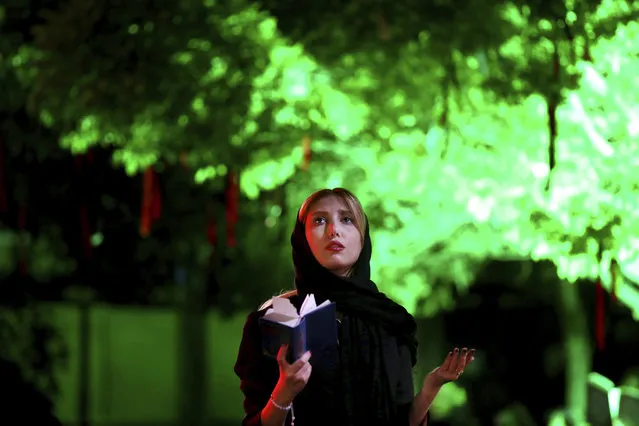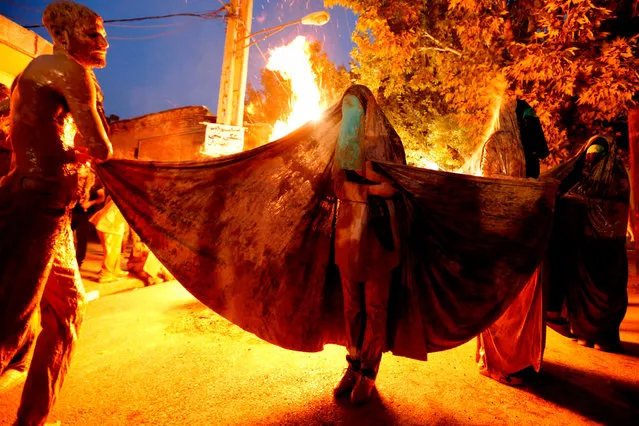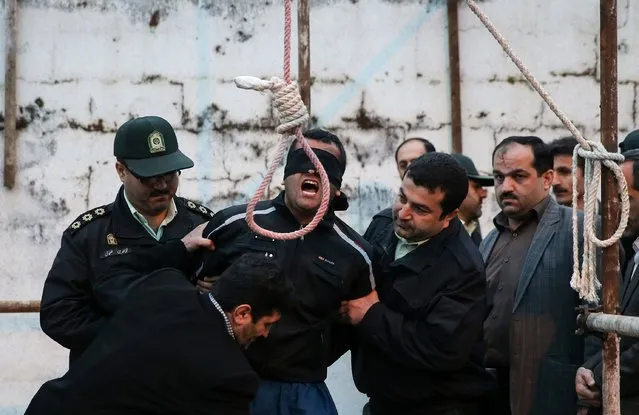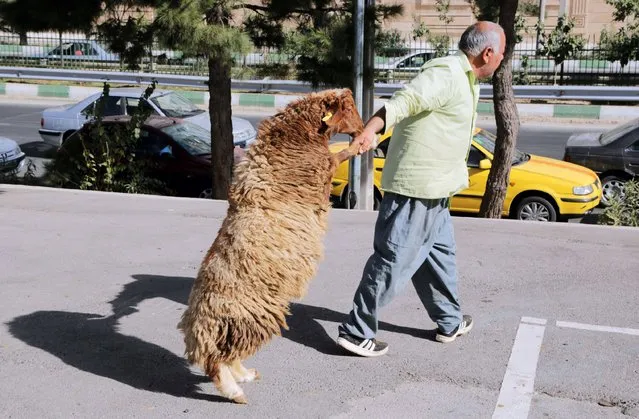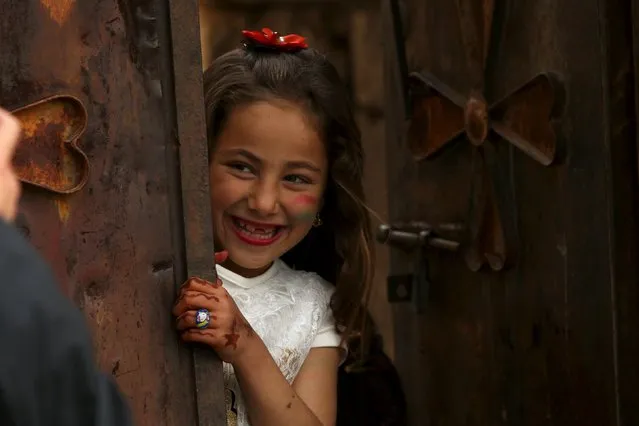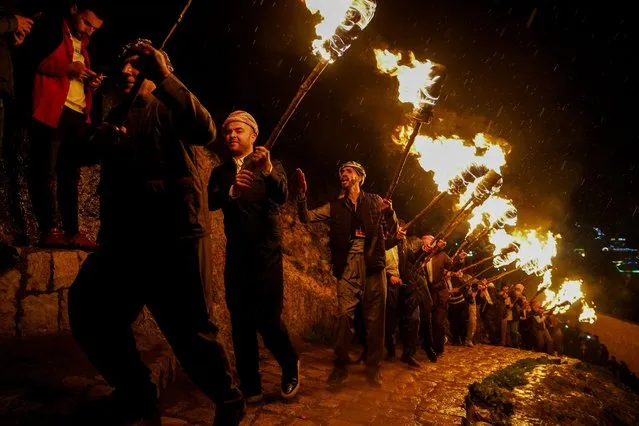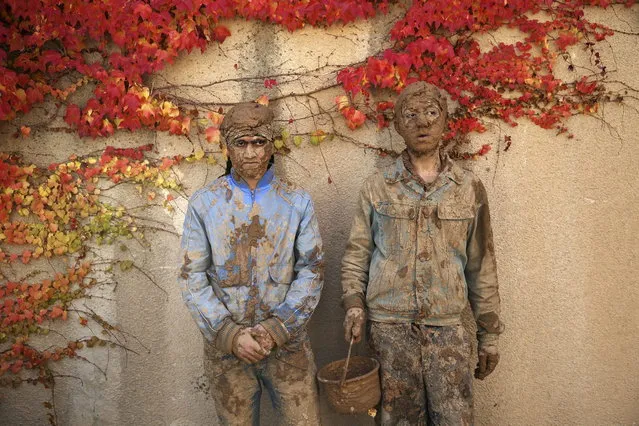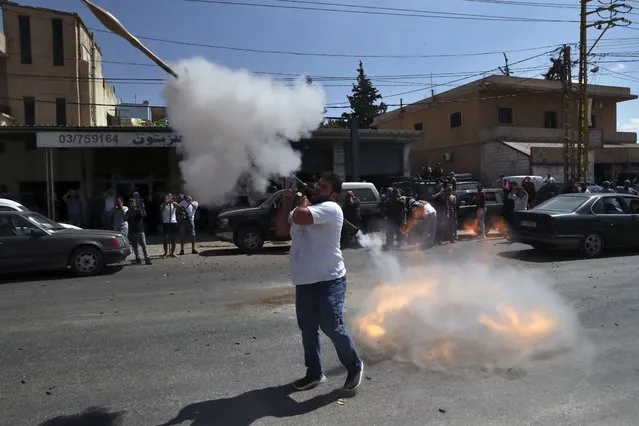
A Hezbollah supporter fires a rocket-propelled grenade in the air to celebrate the arrival of Iranian fuel tankers to Lebanon, in the eastern town of Baalbek, Lebanon, Thursday, September 16, 2021. The delivery violates US sanctions imposed on Tehran after former President Donald Trump pulled America out of a nuclear deal between Iran and world powers three years ago. (Photo by Bilal Hussein/AP Photo)
15 Oct 2021 10:04:00,post received
0 comments

